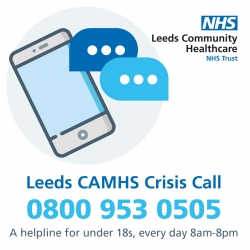Safeguarding
Here at Castleton, we will:
Value strengths in each other;
Work within agreed policies of the school;
Create a happy, caring and safe school;
Encourage children to think for themselves, ask questions and find answers;
Create an environment of trust.
School policies are in place to ensure that all children are safe and safeguarded at Castleton, following Government guidance, "Keeping Children Safe in Education"
(Please click on link to read full guidance)
Keeping Children Safe in Education 2025
Child Protection
Our designated staff for child protection are:
- Mrs Gleadhill (Lead DSL)
- Mr Jones (Deputy DSL)
- Mrs Vause (DSL)
- Mr Newton (DSL)
- Miss Rachel Dodson (Family Support Worker & DSL)
- Miss Pyrah (DSL)
- Mrs Penny (DSL)
- Miss Tompkins (Children's Centre Designated Safeguarding Lead)
- Mrs Bennett (Children's Centre Deputy Designated Safeguarding Lead)

Prevent Strategy
What is the Prevent strategy?
- Prevent is a government strategy designed to stop people becoming terrorists or supporting terrorist or extremist causes.
- The Prevent strategy covers all types of terrorism and extremism, including the extreme right wing, violent Islamist groups and other causes.
How does the Prevent strategy apply to schools?
- From July 2015 all schools (as well as other organisations) have a duty to safeguard children from radicalisation and extremism.
- This means we have a responsibility to protect children from extremist and violent views the same way we protect them from any other harm.
- Importantly, we can provide a safe place for pupils to discuss these issues, at an appropriate level so they better understand how to protect themselves.
What does this mean in practice at Castleton Primary School?
Many of the things we already do in school to help children become positive, happy members of society also contribute to the Prevent strategy. These include:
- Having a strong Aims and Ethos which pervades our school.
- Focusing on core values.
- Exploring other cultures and religions and promoting diversity.
- Challenging prejudices and racist comments.
- Developing critical thinking skills and a strong, positive self-identity.
- Promoting the spiritual, moral, social and cultural development of pupils, as well as British values such as democracy.
We will also protect children from the risk of radicalisation, for example by using filters on the internet to make sure they can’t access extremist and terrorist material, or by vetting visitors who come into school to work with pupils.
Isn’t my child too young to learn about extremism?
The Prevent strategy is not just about discussing extremism itself, which may not be appropriate for younger children. It is also about teaching children values such as tolerance and mutual respect. This is what we will focus on at Castleton Primary School.
The school will make sure any discussions are suitable for the age and maturity of the children involved.
Is extremism really a risk in our area?
Extremism can take many forms, including political, religious and misogynistic extremism. Some of these may be a bigger threat in our area than others.
We will endeavour to give children the skills to protect them from any extremist views they may encounter, now or later in their lives.
Further information
Contact the school - If you have any questions or concerns about the Prevent Strategy and what it means for your child, please do not hesitate to contact the school.
See our policies - You will find more details about radicalisation in our safeguarding policy, available on our website.
External sources - The following sources may also be useful for further information:
Key Terms
Extremism – vocal or active opposition to fundamental British values.
Ideology – a set of beliefs
Terrorism – a violent action against people or property, designed to create fear and advance a political, religious or ideological cause
Radicalisation – the process by which a person comes to support extremism and terrorism
Click here to find more information on the Leeds City Council website
Leeds CAMHS service
Are you a young person struggling to cope? Is life getting harder and harder? Are you a parent worried about your child?
The NHS in Leeds has opened a new Freephone Crisis Call Line to support children and young people whatever the circumstances, by listening, supporting, advising and signposting.
The team will ensure that all callers receive an efficient and timely response for anyone up to aged 18 years in critical moments, so that you get fast access to help when needed.
Leeds Children and Adolescent Mental Health Service (CAMHS) Crisis Call is open 8am - 8pm, 7 days a week, 365 days a year in Leeds.
Freephone: 0800 953 0505

Leeds Joint Agency Protocol for Domestic Violence and Abuse
School Notifications (DVA Notifications Process) has been established to support children who are resident in households where there are incidents of domestic violence and abuse. We know that children can be significantly physically or emotionally hurt by being either present in the house or directly witnessing an incident of domestic violence.
The DVA Notification Process has been designed to provide confidential notification to schools on any incidents of domestic violence and abuse which occur within a child’s household that might have an impact on a child whilst they are in school.
The process will ensure that a member of staff is trained to allow them to use the information that has been shared, in confidence, and ensure that school is able to make provision for possible difficulties experienced by children, or their families, who have been involved in or witnessed a domestic violence or abuse incident.
We are keen to offer the best support possible to our pupils and we believe this is going to be extremely beneficial for all those involved.
If you would like further support or information about domestic violence and abuse please go to www.leeds.gov.uk/antisocial-behaviour-and-crime/domestic-violence-and-abuse




